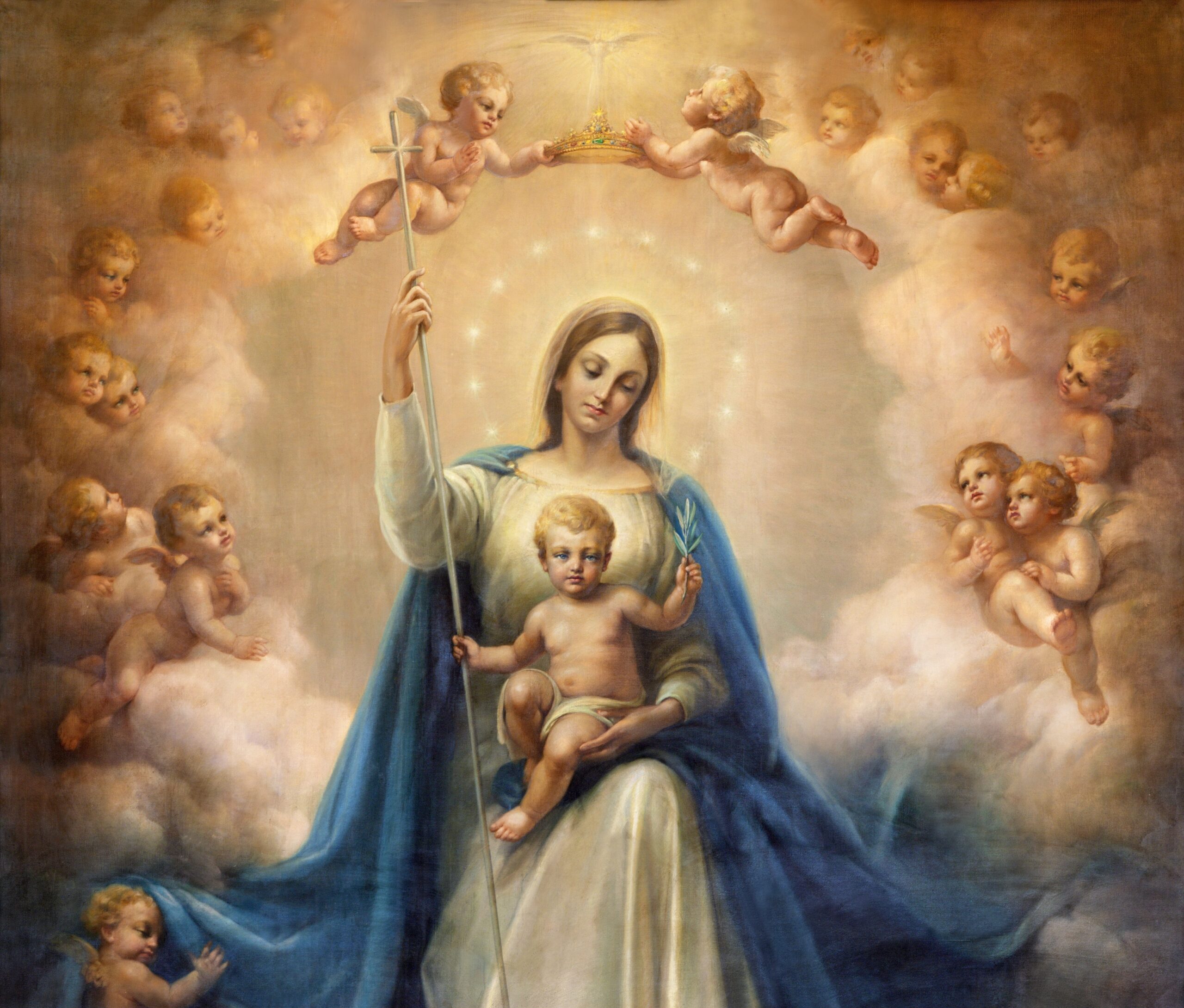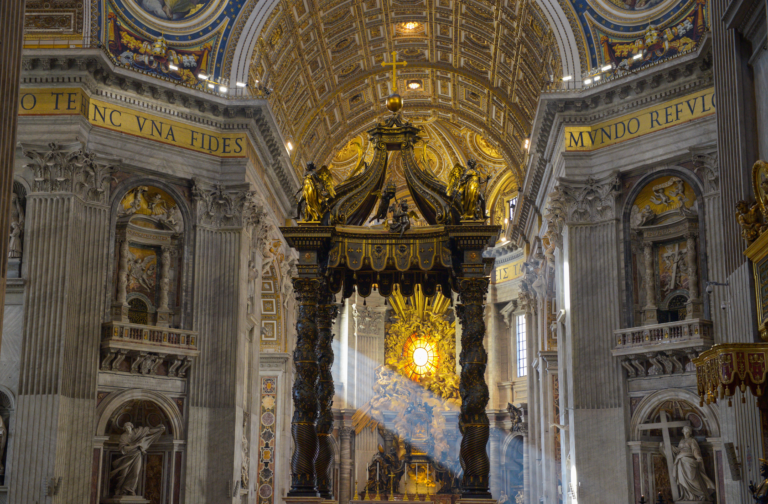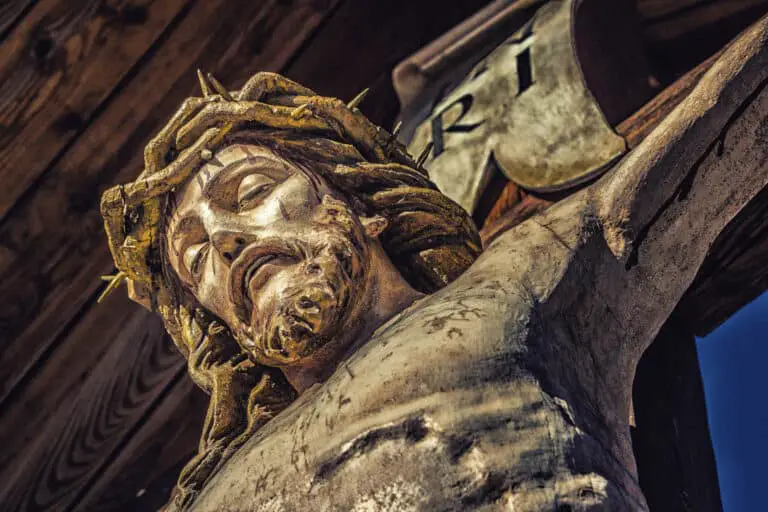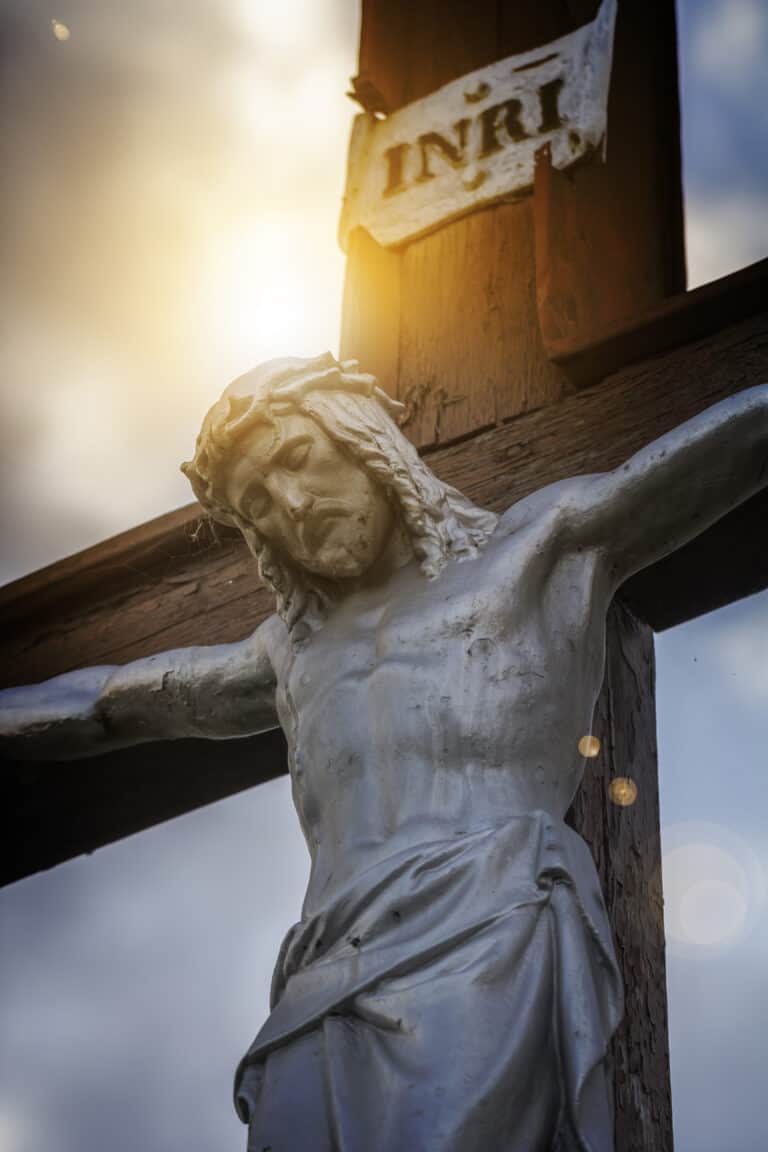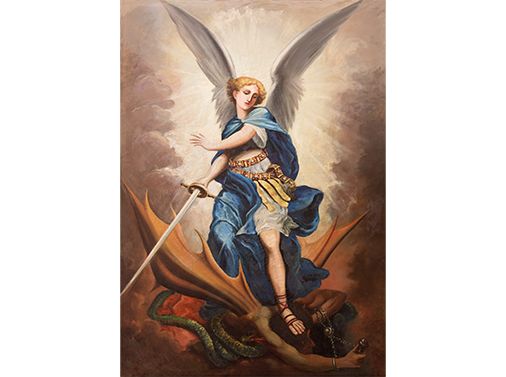Why Early Church Fathers Called Mary the Mother of God: Hidden Insights Revealed
The title “Mother of God” stands as one of Christianity’s most profound and controversial declarations about Mary. Throughout history, this powerful designation has sparked intense theological debates, shaped Christian doctrine, and influenced how millions of believers understand Jesus Christ’s divine nature.
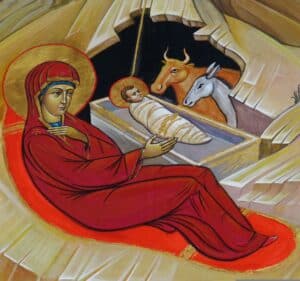
Indeed, when the early Church Fathers defended this title in the 5th century, they weren’t simply honoring Mary – they were protecting essential Christian beliefs about Jesus Christ’s identity. Their arguments, developed during heated theological controversies, continue to impact Christian thought today.
This article explores why influential early Church Fathers championed the title Mother of God, examining the historical context, key theological arguments, and lasting significance of their teachings. We’ll uncover the deep insights behind this ancient designation and its relevance for modern Christian faith.
What is the Historical Context Behind the Title Mother of God?
The fifth century marked a pivotal moment in Christian history as fierce debates erupted over Mary’s role in salvation. Specifically, the controversy centered around a profound question: Could a human woman be called the Mother of God?
The theological landscape of the early fifth century buzzed with intense discussions about Jesus’s nature and Mary’s role. At the heart of this controversy stood two prominent figures with opposing views:
- Bishop Nestorius of Constantinople, who advocated for the title Christotokos (Christ-bearer)
- St. Cyril of Alexandria, who defended the traditional Theotokos (God-bearer) title
Furthermore, this wasn’t merely a debate about words. Nestorius argued that Mary could only be mother to Christ’s human nature, while Cyril maintained that she gave birth to the complete person of Jesus – both human and divine.
The Council of Ephesus and Its Significance
Consequently, Emperor Theodosius II convened the Council of Ephesus in 431 AD to resolve this theological crisis. The council’s proceedings proved dramatic and decisive. After careful deliberation, the bishops:
- Condemned Nestorius’s position
- Officially declared Mary as Theotokos (Mother of God)
- Affirmed that Jesus possessed both human and divine natures in one person
The council’s decision wasn’t just about honoring Mary – it fundamentally shaped how Christians understood Jesus’s identity. Additionally, this declaration had been supported by centuries of Christian tradition, as believers had already been addressing Mary as “Mother of God” for at least two hundred years before the council and rooted in Scripture through the words of Elizabeth – “Mother of my Lord”.
Cultural and Social Influences of the Time
The impact of the Council of Ephesus extended far beyond theological circles. The declaration spurred widespread devotion to the Mother of God throughout the Roman Empire. In Alexandria, the title had already gained significant devotional usage by the 3rd or 4th century.
The council’s decision also influenced religious art and architecture. For instance, Pope Sixtus III commemorated the council’s declaration by rebuilding St. Mary Major in Rome. This architectural tribute reflected how deeply the title “Mother of God” had resonated with Christian communities across different cultures and regions.
Who were the early Church Fathers Who Defended This Title?
Three influential Church Fathers stand out in their defense of Mary’s divine motherhood, each contributing unique theological insights that shaped Christian understanding.
1) St. Cyril of Alexandria
St. Cyril of Alexandria emerged as the most passionate defender of the title “Mother of God” in the 5th century. As Patriarch of Alexandria from 412-444 AD, he led the charge against those who questioned this sacred designation. His arguments centered on several key points:
- The unity of Christ’s divine and human natures
- The logical connection between Christ’s divinity and Mary’s motherhood
- The importance of proper terminology in expressing faith
Moreover, Cyril’s defense wasn’t merely academic. In his letters to Nestorius, he emphasized that denying Mary’s divine motherhood would effectively divide Christ into two separate persons.
He wrote:
“I have been amazed that some are utterly in doubt as to whether the holy Virgin is able to be called the Mother of God”.
2) St. Ignatius of Antioch
Similarly, St. Ignatius of Antioch, writing much earlier around 105 AD, provided foundational support for this title. In fact, as a disciple of St. John the Apostle, his teachings carried particular weight. In his letter to the Ephesians, he proclaimed
“God become man… from Mary and from God”, establishing an early precedent for understanding Mary’s divine motherhood.
3) St. Irenaeus’s Teaching
Above all, St. Irenaeus of Lyons, writing around 180 AD, developed perhaps the earliest systematic understanding of Mary’s role. Noteworthy was his connection between Eve and Mary, describing how “the knot of Eve’s disobedience was loosed by the obedience of Mary”.
As one who had met Christians with direct connections to the Apostles, Irenaeus brought unique authority to this teaching. His analysis proved both scriptural and Christological, presenting Christ as the “New Adam” and Mary as the “New Eve”.
This parallel between Eve and Mary became fundamental to Christian understanding, with Irenaeus explaining how Mary’s obedience counteracted Eve’s disobedience.
Through their combined efforts, these Church Fathers established a robust theological foundation for the title “Mother of God.” Their teachings, rooted in both scripture and tradition, continue to influence Christian thought today.
What is the Theological Foundations for Mary’s Divine Motherhood?
Understanding the theological foundations of Mary’s divine motherhood requires examining fundamental Christian doctrines. The Church’s declaration of Mary as Mother of God rests on precise theological reasoning rather than mere devotional sentiment.
1) The Incarnation and Its Implications
The doctrine of the Incarnation forms the cornerstone of Mary’s divine motherhood. This mystery reveals how God’s eternal Son took on human flesh through Mary’s womb. Therefore, although Mary did not create or generate God’s divine nature, she nonetheless gave birth to the complete person of Jesus Christ – both God and man.
The theological principle known as the “Communication of Idioms” helps explain this reality. According to this principle, whatever can be said about either of Christ’s natures can be truly said about Christ himself, since He is one divine person.
2) Unity of Christ’s Divine and Human Natures
The Church’s teaching about Mary’s divine motherhood protects an essential truth about Christ’s identity. Consider these key theological points:
- Mary gave birth to a person, not merely a nature
- That person was and is the eternal Son of God
- The human nature Jesus received from Mary was inseparably united to His divine nature
Hence, denying Mary’s title as Mother of God would subsequently lead to one of two serious errors: either denying Christ’s divinity or dividing Him into two separate persons.
What is the Biblical basis for the title ‘Mother of God’?
Although Scripture does not explicitly use the phrase “Mother of God,” it provides substantial support for this doctrine. The angel Gabriel’s words at the Annunciation declare that Mary’s child would be “the Son of God”.
Subsequently, Elizabeth, filled with the Holy Spirit, calls Mary “the mother of my Lord” – effectively addressing her as mother of YHWH himself.
Rather than creating controversy, the first Christians called Mary the Mother of God without hesitation.
This natural conclusion flowed from their understanding that if Jesus was God, and Mary was his mother, then accordingly she must be the Mother of God.
This theological foundation explains why the Council of Ephesus declared that anyone who refused to confess Mary as Mother of God would be considered outside orthodox Christian teaching. The title serves as a vital safeguard of authentic Christian doctrine about both Christ’s divinity and the unity of His person.
What are the Common Misconceptions About This Ancient Title?
Despite centuries of theological discussion, misunderstandings about the title “Mother of God” persist across different Christian traditions. These misconceptions often stem from varying interpretations of Mary’s role in salvation history.
A) Addressing Protestant Concerns
Many Protestant communities express significant reservations about this ancient title. Their primary concerns include:
- The phrase “Mother of God” is not explicitly found in Scripture
- The title might suggest Mary as the source of Christ’s divinity
- Concerns about potential elevation of Mary to divine status
However, as historical records show, even Protestant reformers like Martin Luther and John Calvin acknowledged the legitimacy of this title.
In contrast to modern objections, these early Protestant leaders understood its Christological significance.
B) Clarifying Orthodox Understanding
The Orthodox Church maintains a distinct perspective on this title, emphasizing its essential role in preserving correct doctrine about Christ. Undoubtedly, Orthodox theology sees the title as fundamentally about Christ’s identity.
The Orthodox tradition stresses that honoring Mary as Theotokos naturally flows from properly understanding the Incarnation.
Meanwhile, Orthodox teaching clarifies that venerating Mary as Mother of God differs significantly from worship, which is reserved for God alone.
This careful distinction helps prevent misunderstandings about Mary’s role in Orthodox spirituality.
C) Explaining Catholic Interpretation
The Catholic Church, likewise, addresses common misconceptions by emphasizing that the title “Mother of God” primarily safeguards Christological truth. Certainly, Catholic teaching maintains that Mary is not the source of Christ’s divine nature, but rather the mother of his complete person.
In contrast to claims of excessive Marian devotion, the Catholic perspective emphasizes that all Mary’s privileges stem from her relationship to Christ. The Church’s understanding recognizes Mary’s unique role while maintaining Christ’s absolute primacy.
Altogether, these various Christian traditions, despite their differences, share common ground in acknowledging the theological importance of this ancient title. The ongoing dialog between these traditions continues to clarify misunderstandings and foster deeper appreciation for its significance in Christian doctrine.
What is the modern relevance of the title ‘Mother of God’?
In recent years, surprising developments have emerged regarding the ancient title “Mother of God,” as Christians across different traditions rediscover its significance for modern faith and practice.
1) Ecumenical Significance Today
Remarkably, the title “Mother of God” has become a bridge for dialog between various Christian traditions. Contemporary Roman Catholic teaching now aligns more closely with Lutheran perspectives, focusing on Mary’s role in pointing toward Christ.
Even evangelical Christians, especially women, are finding fresh inspiration in Mary as an example of grace and gospel proclamation.
Notably, this renewed understanding transcends traditional denominational boundaries. Charismatic Christians appreciate Mary’s example of Spirit-filled living, whereas Christians focused on social justice find inspiration in her prophetic vision of God’s transformative power.
2) Impact on Contemporary Theology
The theological landscape has witnessed substantial shifts in how different traditions view this ancient title.
First, Anglican theology offers a balanced approach that acknowledges Mary’s place in God’s purposes without excessive veneration. This perspective provides seeds for healing historical divisions between Christian communities.
Contemporary feminist theologians have brought forth another dimension, recognizing in Mary an affirmation of women’s essential role in God’s plan. This interpretation emphasizes that without Mary’s participation, there would be no incarnation of Christ.
What are the Practical Applications for Modern Christians?
The title “Mother of God” carries profound implications for today’s believers:
- It demonstrates the dynamic of grace and faithful response to God’s call
- It exemplifies Spirit-inspired agency in God’s kingdom work
- It provides a model for receiving and releasing Christ’s ministry into the world
Most compelling, Mary’s example teaches modern Christians several vital lessons:
- The importance of humble submission without losing personal agency
- The balance between questioning and trusting God’s plan
- The significance of treasuring spiritual truths while actively living them out
Presently, this ancient title invites Christians to recognize their shared heritage while respecting denominational distinctives. Through careful theological reflection and respectful dialog, the church continues to discover new depths in this time-honored designation.
For modern believers, Mary’s title as Mother of God serves as a reminder that faith requires both intellectual understanding and heartfelt devotion. Just as Mary pondered divine mysteries in her heart, today’s Christians are called to thoughtfully engage with this profound aspect of their faith tradition.
Conclusion
Throughout history, the title “Mother of God” has proven far more than a mere honorific designation. Rather, this profound declaration serves as a cornerstone of Christian doctrine, protecting essential truths about Christ’s identity while honoring Mary’s unique role in salvation history.
Ancient Church Fathers like Cyril of Alexandria, Ignatius of Antioch, and Irenaeus understood this title’s vital importance. Their careful theological reasoning established foundations that continue supporting Christian understanding today. Though controversies sparked intense debates in the fifth century, the Council of Ephesus’s decisive affirmation of Mary as Theotokos shaped Christianity’s future course.
Modern Christian communities certainly benefit from rediscovering this ancient title’s significance. While different traditions may emphasize varying aspects, the designation “Mother of God” builds bridges between denominations, enriches contemporary theology, and offers practical wisdom for believers today.
Most significantly, this title reminds Christians that authentic faith requires both intellectual understanding and devoted hearts. Just as Mary pondered divine mysteries while actively participating in God’s plan, believers today must thoughtfully engage with their rich theological heritage while living out its truths.
